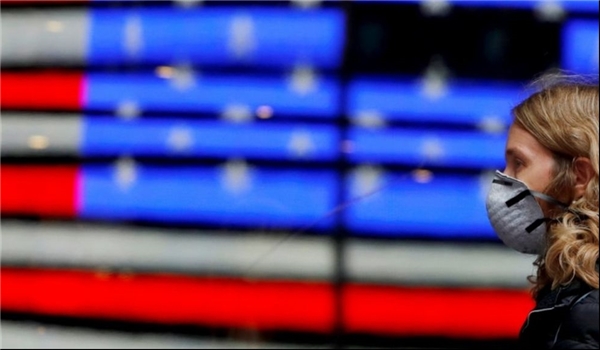
TEHRAN (FNA)- One of the UK government’s leading scientific advisers stated that the failure to enter lockdown sooner “has cost a lot of lives” and that Britain should not relax its guard, as ministers push ahead with an accelerated programme of easing restrictions.
Prof. John Edmunds, an epidemiologist at the London School of Hygiene and Tropical Medicine, said the coronavirus epidemic was “definitely not over” and cautioned that loosening measures too quickly could mean infections coming back very fast.
Speaking on the BBC’s Andrew Marr Show on Sunday, he expressed regret that the UK had not entered lockdown sooner than it did on March 23.
Edmunds, who sits on the Scientific Advisory Group for Emergencies (Sage), noted, “We should have gone into lockdown earlier. I think it would have been hard to do it, I think the data that we were dealing with in the early part of March and our kind of situational awareness was really quite poor."
“And so I think it would have been very hard to pull the trigger at that point but I wish we had. I wish we had gone into lockdown earlier. I think that has cost a lot of lives unfortunately,” he added.
His analysis comes at a time of controversy over whether the government is right to continue easing lockdown measures when one study by Public Health England and Cambridge University suggests the rate of transmission is creeping up in some regions.
The Sunday Times reported that Prime Minister Boris Johnson had been shocked by an estimate from the business secretary, Alok Sharma, that 3.5mln jobs would be at risk this summer if the hospitality sector failed to reopen.
Ahead of a major speech to relaunch his domestic agenda, the prime minister is likely to discuss reopening plans with his cabinet this week. These include easing restrictions on weddings and funerals from next month, and possible measures to to allow hairdressers to reopen before July 4. Places of worship will be allowed to open from June 15 for private prayer, alongside non-essential retail outlets.
There is still nervousness among some scientists, however, after the PHE/Cambridge study suggested the North-West and possibly the South-West may have an R value – the average number of people an infected person transmits the virus to - above the crucial tipping point of 1. This is the point at which it begins to spread exponentially again.
Edmunds said the study was only one of 10 considered by the government, with the other nine being “not quite so gloomy”.
He stated, however, that overall it “does look like the reproduction rate is going up a little bit, only very marginally” and possibly “creeping close to 1 in some places and we can’t rule out that it might be even 1 in some regions”.
He added that he would rather the overall number of infections was less than 5,000 new cases a day in the community, as recorded by the Office for National Statistics data, and noted it was certainly not a time for complacency.
Health Secretary Matt Hancock disputed Edmunds’ assessment that the lockdown should have been imposed sooner and defended the government’s decision to reopen shops and schools.
He told the same programme, “I think we took the right decisions at the right time. There’s a broad range on Sage of scientific opinion and we were guided by the science, which means guided by the balance of that opinion as expressed to ministers through the chief medical officer and the chief scientific adviser. That’s the right way for it to have been done.”
Hancock stated other scientists made different arguments.
He also disputed the idea that the R value was above 1 anywhere in the UK, even though PHE is part of his own department. He said Sage overall believed every region had an R value of less than 1.
The government is bringing in tougher restrictions on air travel from Monday, with inbound travellers asked to quarantine for 14 days. Ministers are, however, considering replacing this with a plan for reciprocal waiving of quarantine arrangements with countries that have low infection rates at the earliest opportunity.
Hancock said he still hoped people may be able to travel abroad this summer, adding, “I really hope that people are going to be able to fly to go on summer holiday, but we’ve got to take an approach that starts with caution."

No comments:
Post a Comment